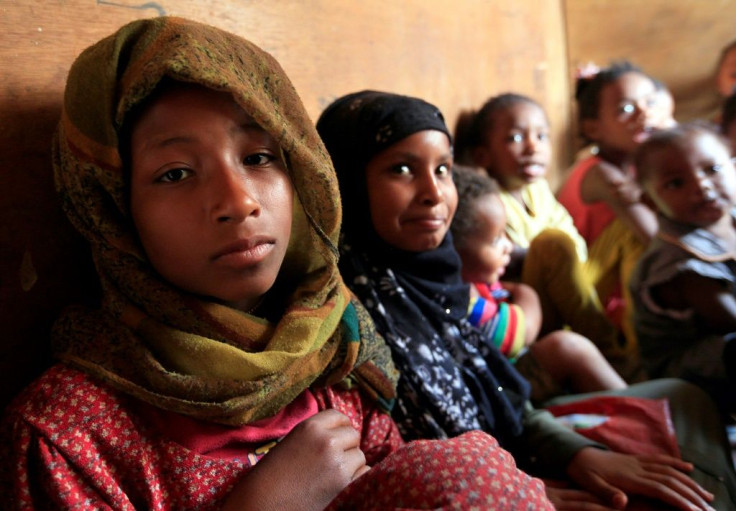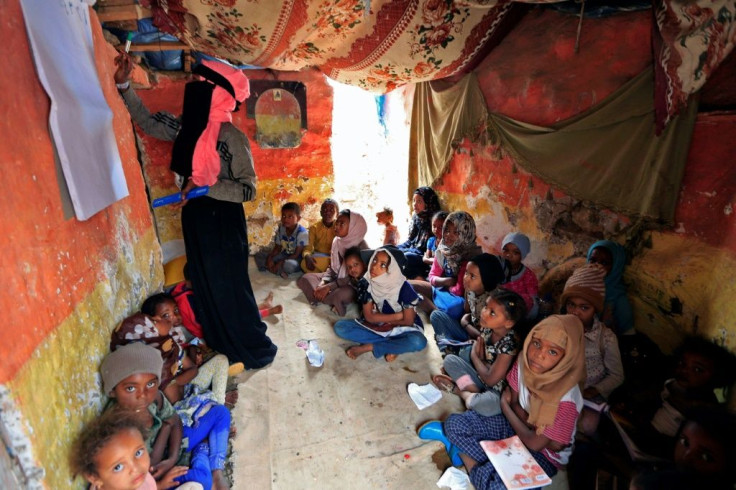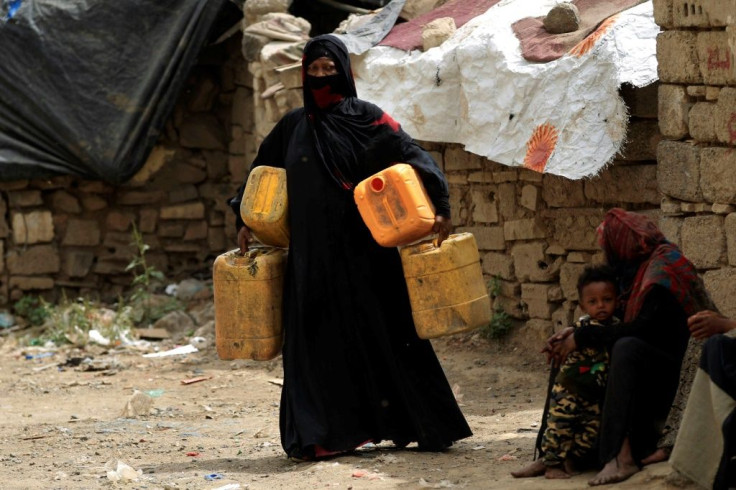Black Yemenis Remain In Shadows, Far From Global Protests

At a time when the Black Lives Matter movement is reshaping societies, black Yemenis have scant hope for an end to centuries of discrimination that has only worsened during the country's civil war.
The life of Haitham Hassan in the capital Sanaa remains unchanged despite the global wave of protests sparked by the death in May of an unarmed black man, George Floyd, who was pinned down under a white US police officer's knee.
Hassan gives no flicker of recognition when asked about Black Lives Matter. But he can recount how he faces racism on a daily basis, often having to tolerate slurs that mean "slave" or "servant" because of the colour of his skin.
In Sanaa, members of the minority group known as "Muhamasheen" -- literally the "Marginalised" -- live in dismal conditions in densely populated slums.
They count among the poorest of the poor in the Arab world's most impoverished country blighted by more than five years of conflict.
In the narrow streets of a shantytown in southern Sanaa, lined with makeshift tents and cardboard homes along with a few simple brick structures, women cook outside on stoves fuelled with scraps of rubbish.

"It's as if we are not part of Yemeni society, even though we hold Yemeni identification papers," Hassan told AFP.
"Our children in schools are treated differently... and we are looked at sideways on the streets and in markets."

Most black Yemenis live in the Red Sea coastal plain of Tihama, which extends from the Bab al-Mandab Strait to the western port city of Hodeida.
Others live in Sanaa in the north and Aden in southern Yemen.

There is debate over the ethnic origins of the community, says the London-based Minority Rights Group International.
"Some believe they are descended from African slaves or Ethiopian soldiers from as far back as the sixth century. Others nevertheless think they are of Yemeni origin," it said in a report.
"They have suffered from higher rates of unemployment and generally live in poverty, lacking access to basic services such as water, sanitation and education, as well as economic opportunities."
Black Yemenis -- who make up between two and 10 percent of the population, according to various estimates -- have long struggled to survive, confined as they are to low-paying jobs like street sweeping or collecting garbage.

They exist outside the country's tribal social structure, a life on the margins, which increases their vulnerability.
"We suffer from racial discrimination... they have given us no rights, but it is time that we are granted those rights," said Moujahid Azzam, a community leader in the rebel-held city of Sanaa.
The country's conflict pits Iran-backed Huthi rebels against the government, which is supported by a Saudi-led military coalition.
Last month, rebel chief Abdulmalik al-Huthi called for the integration of black Yemenis into society under a long-term national programme, raising hope but also sparking scepticism.
According to the president of the National Union of the Marginalised, which advocates for the community in Yemen, the rebels' call is merely a ploy to draw them into their ranks.
"The goal is to play on the emotions of the marginalised and recruit them to fight on the front lines," Nuaman al-Hudhaifi told AFP.
Since the start of the war, which saw the rebels seize Sanaa in 2014 before going on to capture much of the north, tens of thousands of people have been killed and millions displaced in what the United Nations calls the world's worst humanitarian crisis.
Even before the conflict, "Yemen's caste system put Al-Muhamasheen at the very bottom of the social hierarchy," Afrah Nasser, Yemen researcher at Human Rights Watch, told AFP.
Their suffering has only worsened since war broke out, she said.
"It's like hell on Earth."
Hudhaifi said that when popular protests broke out in 2011 demanding political change, inspired by the "Arab Spring" uprisings, black Yemenis joined the demonstrations hoping their own situation would change.
But the war, which has created widespread hunger and desperation across Yemeni society, has slowed any momentum towards reform, and ensured that Black Lives Matter will have little impact.
"If Yemen was a stable country, we would have been part of this global movement on the streets protesting at this historic moment, but the war has prevented us from doing so," Hudhaifi said.
"Unfortunately, the situation in Yemen will remain the same because of these complicated social and tribal structures, in which discrimination is embedded and based on tribe, region and religion."
© Copyright AFP {{Year}}. All rights reserved.





















